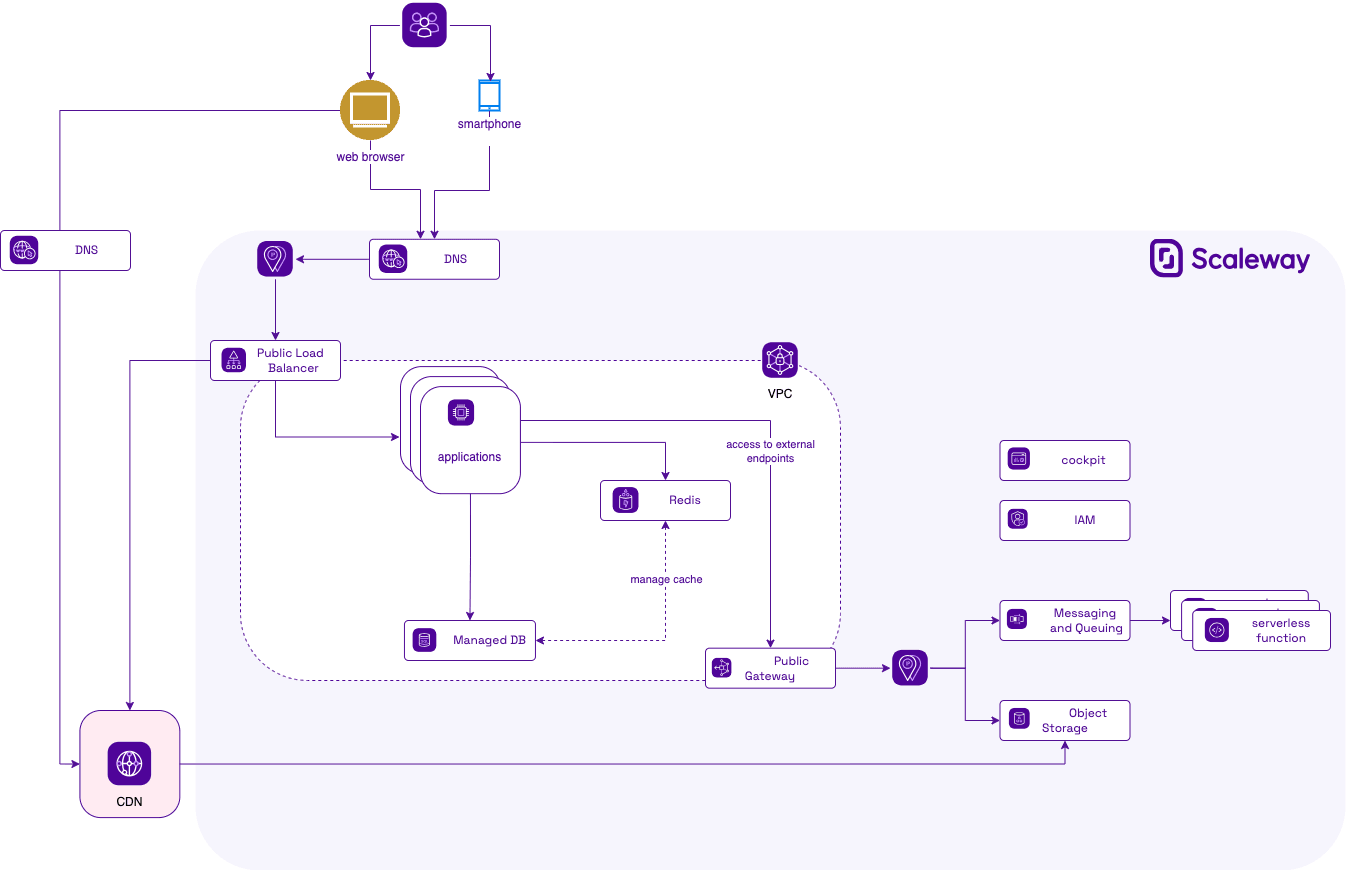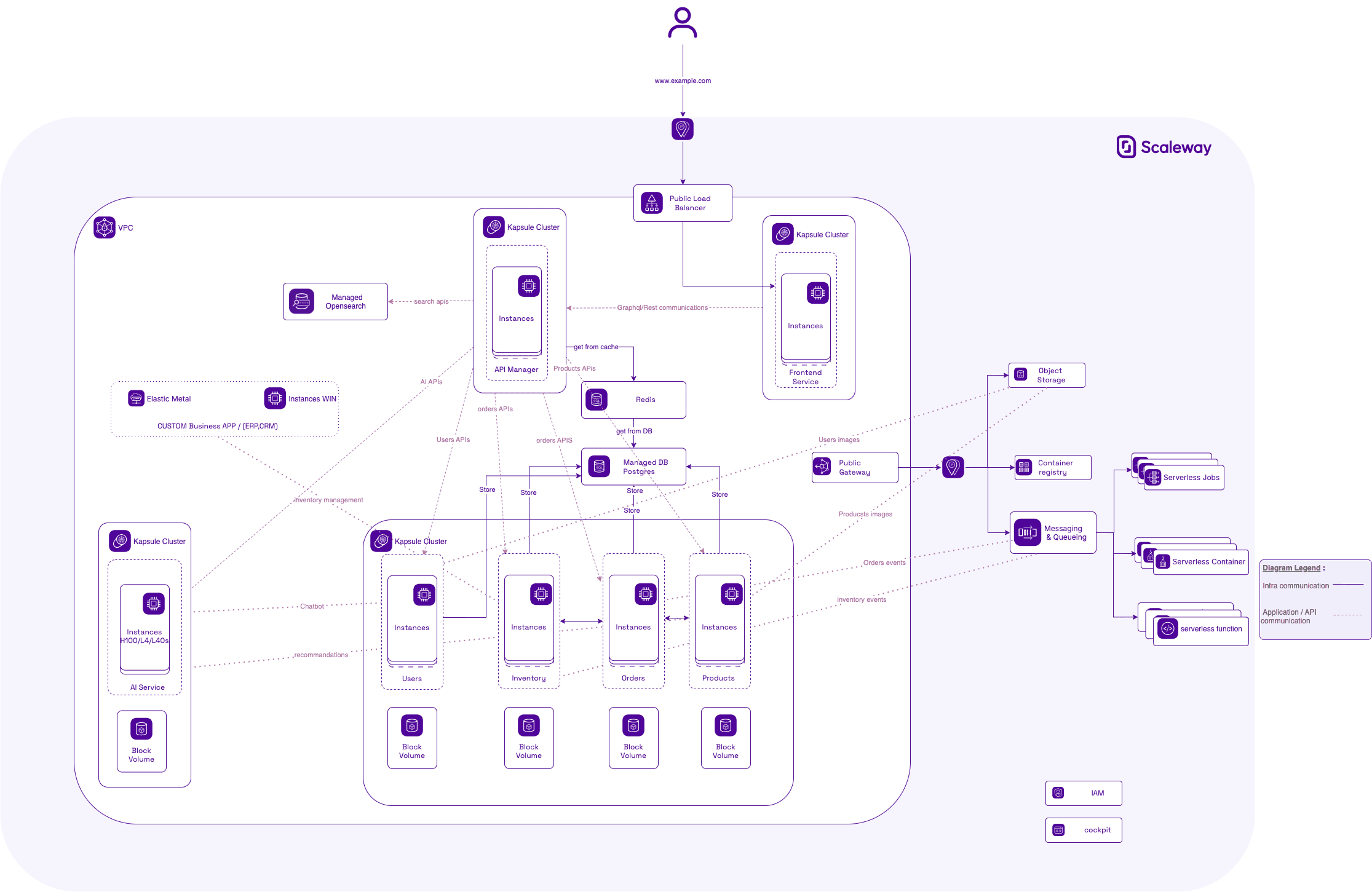
The Cloud and Retail in 2024 and beyond
What do retailers need from the cloud? And how does AI fit into their plans? Let's find out...

In 2024, the retail industry in Europe and beyond is evolving rapidly as retailers respond to shifting consumer behaviors and growing demands for personalized, seamless experiences. With increasing pressure to integrate omnichannel strategies and manage complex supply chains, many retailers are turning to cloud solutions that offer both flexibility and scalability.
In response to these challenges, new architectural approaches such as MACH (microservices, API-First, Cloud Native and headless) commerce systems have emerged. In these modern approaches, breaking monolithic architecture into independent microservices can allow it to be developed, deployed, and scaled independently.
Let us start by defining composable commerce as e-commerce functionalities that have been split up into discrete switchable components. It allows companies to “compose” an e-commerce stack on a case-by-case basis, based on business needs, switching out parts whenever a better solution becomes available. The underlying values are the MACH principles.
Several European retail giants are making bold moves towards MACH architecture. This transition reflects a broader industry trend: moving away from monolithic systems and toward more modular, scalable, and agile solutions.
A prime example is Carrefour. By adopting MACH, Carrefour aims to enhance its ability to integrate new services such as AI-powered recommendations and real-time inventory management, while maintaining the flexibility to respond to market demands quickly.
Similarly, OBI, the German DIY retailer, has unified its sales across multiple channels by adopting MACH principles. OBI has integrated its e-commerce and in-store experiences through an API-driven approach - source).
As European retailers embrace MACH, they are seeking cloud providers that can support such agile, API-driven architectures. Scaleway’s Kapsule Kubernetes service, combined with Instances, provides the flexibility and performance required for retailers looking to implement a MACH strategy. By leveraging Scaleway’s managed cloud services, companies can build, deploy, and manage microservices without worrying about the complexity of scaling their infrastructure.
For example, Scaleway’s cloud infrastructure allows European retailers to easily integrate AI-powered tools (like Managed Inference or Generative APIs), personalized marketing campaigns, and real-time analytics, further enhancing their ability to provide a seamless omnichannel experience. By combining cloud-native services with a modular architecture, retailers can future-proof their operations and stay competitive in a constantly evolving market.
Scaleway provides a myriad of scalable cloud solutions which enable MACH or composable commerce approaches. The infrastructure allows companies to build fault-proof and high-performance e-commerce platforms in an effort to support the ever-demanding market of today. Supported by Scaleway, companies can more easily ensure agility, flexibility, and scalability and remain in the race for e-commerce.
The diagram below illustrates how to totally leverage Scaleway's cloud services to establish modern event-driven or headless architecture into scalable retail platforms, in a manner that decouples the frontend and backend for flexibility, scale, and performance optimized across different devices (web browser, smartphone, etc.).
Key Components include: Frontend, Public Load Balancer, Virtual Private Cloud (VPC), Managed Database, Managed Redis, Public Gateway, Messaging and Queuing, Serverless Functions, Object Storage and CDN (Content Delivery Network).


This approach positions Scaleway as a key enabler of composable and MACH commerce for eCommerce businesses, supporting agility, scalability, and the freedom to choose the best tools and frameworks for each part of the system.
Scaleway’s extensive range of cloud services supports the MACH principles, enabling businesses to build modern, scalable, and high-performance e-commerce platforms. By leveraging Scaleway’s infrastructure, businesses can adopt microservices, API-first, cloud-native, and headless architectures, ensuring agility, resilience, and innovation in their digital strategies.
This blogpost is an extract from Scaleway's MACH & retail ebook, coming soon!

What do retailers need from the cloud? And how does AI fit into their plans? Let's find out...